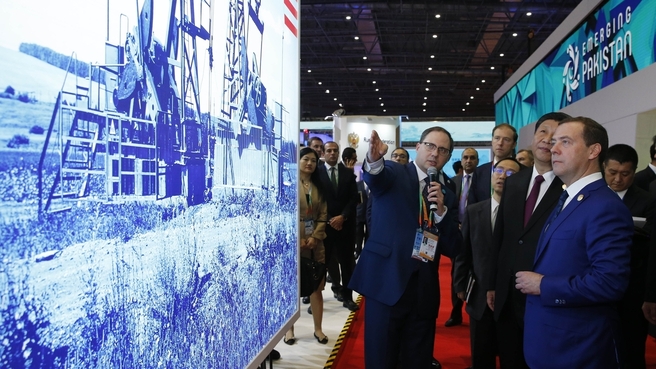
Heads of int’l organizations hail China’s commitment to opening up
Heads of the International Monetary Fund (IMF), World Bank (WB) and the World Trade Organization (WTO) spoke highly of China’s tremendous achievements in reform and opening up on Monday, saying that China’s efforts to expand opening up and safeguard free trade injected strong confidence and development impetus into world economy. They said so when addressing the opening ceremony for the week-long first China International Import Expo (CIIE) in Shanghai, during which more than 3,600 companies from different countries would hold discussions with over 400,000 potential purchasers from China and overseas. WTO Director-General Roberto Azevedo said in his speech that the CIIE sent out a clear message about China’s growing role in global trade. “This is particularly notable as we mark the 40th anniversary of China’s first step on the journey to reform and opening up. And that journey has led China to become a member of the WTO and to China’s strong commitment to our work,” he elaborated.
China was becoming increasingly active in the WTO in many ways, including helping other developing and less-developed countries to join and benefit from the trading system through a variety of programs, said Azevedo, adding that China’s commitment and engagement was very welcome. “The expo also sends another very important and welcome message, and that is about the importance of imports,” said Azevedo. “It reminds us of the essential truth that world trade is not a zero sum game, where exports are good and imports are bad,” he stressed. In fact, more imports meant more choices of advanced foreign products for consumers at lower prices, the head further explained, adding that it could also promote domestic companies to produce products with competitive in order to be more competitive and more efficient in the world market. In her remarks, IMF Managing Director Christine Lagarde hailed China’s contribution to world economy by citing the three “bridges” which China had either constructed or was currently underway.
The first, according to Lagarde, was the “bridge to the world” that China started to build 40 years ago “by opening its economy and by kickstarting reforms that have changed the lives and prospects of hundreds of millions of people—here and beyond China”. The chief furthered that by transforming itself—through trade, hard work, and learning from others—China also helped to transform the global economy. Progress in this country played a significant role in boosting productivity, innovation and living standards in countries around the world. The second one, the head said, is a “bridge to prosperity” China was building underway by rebalancing its economy towards consumption-led growth, rather than export- and investment-led growth. In the first three quarters of this year, consumption contributed 78 percent to China’s GDP growth, up from 50 percent only 5 years ago, she expounded, adding that China’s current account surplus was projected to be less than 1 percent of GDP this year, compared with the figure which was about 10 percent in 2007. Bridge number three is a “bridge to the future” China was constructing by harnessing the power of international cooperation, especially on trade, she pointed out, calling on all countries to de-escalate and resolve the current trade disputes and work together to build the bridge— to peace, to a prosperous future, across the world.
World Bank President Jim Yong Kim gave a thumb up to China’s accomplishments in poverty reduction in his remarks. The president illustrated that by embracing reforms and openness in its development model, China increased its per capita income 25-fold, and more than 700 million Chinese people lifted themselves out of poverty as a result—more than 70 percent of the total poverty reduction in the world. The pro-poor impact of trade liberalization in developing countries was clear, he said, calling on all countries to continue to support trade reforms that can deliver greater shared prosperity, with an overall aim to strengthen the multilateral trading system. Within countries, policy packages, according to the president, should ensure that trade gains be shared widely. “When we’re working to boost and invigorate trade, those workers and those communities that aren’t benefitting from globalization need to be at the front of our minds.” he said.
Jim also called for efforts to put every country in a position where it could “swim in ocean”, where its people had the human capital to compete, and countries had the institutions to make their economies resilient, competitive, and caring. He shared the story of how Guizhou, a province in southwest China he recently visited, shackled off impoverishment through e-commerce in the form of a Taobao village and big data. Poverty in Guizhou was reduced from 30 percent to 8 percent in five years, according to him, who added that now agriculture products like kiwi and spicy chicken from Guizhou were shipped to many provinces in China and all over the world. “I hope that the discussions at this milestone China International Import Expo will bring new ideas and avenues to pursue reforms, make the global market system work for everyone and the planet, help end poverty and ensure equality of opportunity for everyone in the world,” he concluded at last.
By Ji Peijuan (People’s Daily)


